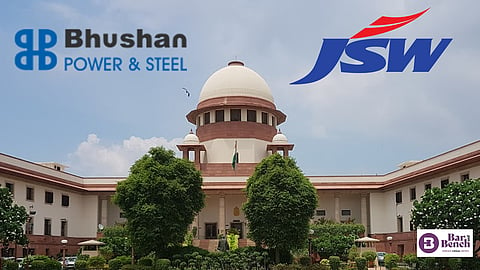
- Latest Legal News
- News
- Dealstreet
- Viewpoint
- Columns
- Interviews
- Law School
- Legal Jobs
- हिंदी
- ಕನ್ನಡ

The Supreme Court, while upholding JSW's resolution plan for Bhushan Power, clarified that a Committee of Creditors (CoC) does not become functus officio after the resolution plan approval, but continues to oversee implementation until plans are fully executed or appeals finally decided. [Kalyani Transco v. Bhushan Power and Steel Limited]